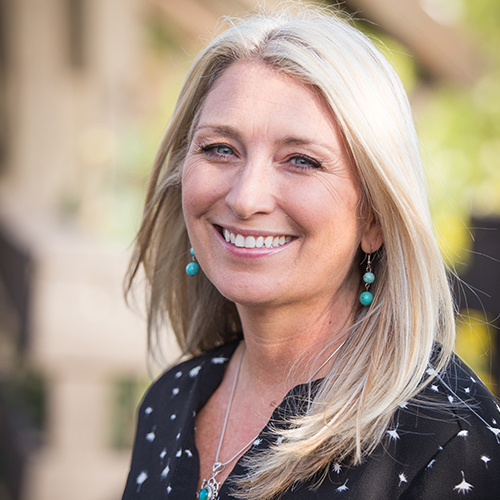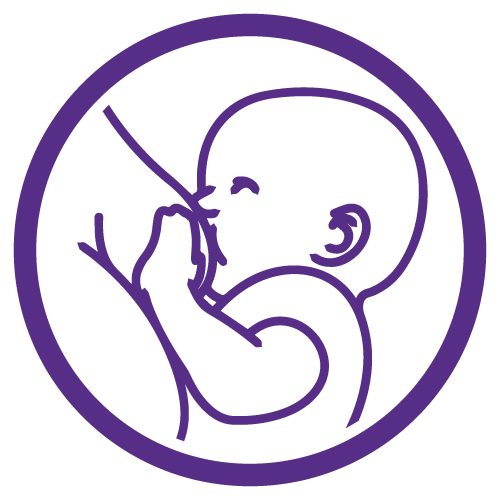 Allergies & Breastfeeding Online Course(s) & Continuing Education
Allergies & Breastfeeding Online Course(s) & Continuing Education
Access the latest clinical skills and research for Allergies & Breastfeeding for Lactation & Breastfeeding professional training. These Allergies & Breastfeeding online courses provide practice-changing skills and valuable perspectives from leading global experts. This Allergies & Breastfeeding education has been accredited for a variety of CEUs / CERPs and can be accessed on-demand, at your own pace.

Can a Baby Be Allergic to Breastmilk?: Sensitivities, Allergies, Galactosemia, and Lactose Intolerance

Laurel Wilson, IBCLC, CLE, CCCE, CLD is a TEDx and international speaker, author, pregnancy and lactation expert, and consultant. She served as the Executive Director of Lactation Programs for CAPPA, the Childbirth and Postpartum Professional Association for 16 years and now is on the Senior Advisor Board. She served on the Board of Directors for the United States Breastfeeding Committee from 2016-2019. She also is on the Advisory Board for InJoy Health. She owns MotherJourney, focusing on training perinatal professionals on integrative and holistic information regarding pregnancy, childbirth, and breastfeeding. She has her degree in Maternal Child Health: Lactation Consulting and is an internationally board certified lactation consultant. As the co-author of two books, The Attachment Pregnancy and The Greatest Pregnancy Ever, original Editor of the CAPPA Lactation Educator Manual, and contributing author to Round the Circle: Doulas Talk About Themselves, she loves to blend today’s recent scientific findings with the mind/body/spirit wisdom. Laurel has been joyfully married to her husband for nearly three decades and has two wonderful grown sons, whose difficult births led her on a path towards helping emerging families create positive experiences. She believes that the journey into parenthood is a life-changing rite of passage that should be deeply honored and celebrated.
Topic: Epigenetics and Breastfeeding: The Potential Longterm Impact of Breastmilk - [View Abstract]
Topic: Hold the Phone! Diet Does Matter During Breastfeeding: Implication of Diet on Fatty Acid Composition and Other Nutrients - [View Abstract]
Topic: Postpartum Mood Disorders, Breastfeeding and the Epigenetic Links from Past Into Future - [View Abstract]
Topic: Talk To Me: How Breastmilk Acts as a Communication and Gene Expression Tool Between Mother and Child - [View Abstract]
Topic: The Milk Sharing Conundrum - The Grey Area Between Scope and Need - [View Abstract]
Topic: The Placenta and Breastmilk-Unraveling the Mysterious World of the Intelligent Organs that Protect our Babies - [View Abstract]
Topic: Understanding Zika and Lyme and Breastfeeding - [View Abstract]
Topic: Unraveling the Mysteries of Human Milk: The Fascinating Role of Neohormones, Epigenetics, the Microbiome and More! - [View Abstract]
Lactation professionals often hear from their clients that their breastfed babies have been diagnosed as lactose intolerance. This lack of understanding regarding types of lactose intolerance and potential issues with breastfeeding involving the newborn gut often lead to a cessation of breastfeeding. This session will cover the three main types of lactose intolerance, as well as galactosemia. Maternal gut damage and protein sensitivity and how that can impact the breastfed baby will also be addressed. Attendees will also learn about the most common foods that cause food sensitivity and allergy and what referrals are best made with these issues.

How Breastfeeding and Food Allergies Intersect: What We Know and How We Can Help

Meghan McMillin holds a Master’s Degree in Human Nutrition from the University of Illinois at Chicago. She has been a Registered Dietitian Nutritionist (RDN) since 2013 and became an International Board Certified Lactation Consultant (IBCLC) in 2019.
Meghan spent 5 years working clinically in the NICU, pediatric floor and women’s units of a local hospital. In 2019, Meghan started her own private practice and consulting company, Mama & Sweet Pea Nutrition, with a focus on postpartum and infant care. The mama to two young kids with food allergies, helping other families manage food allergies, whether it’s while breastfeeding, during the introduction of solids, or later in childhood, is her passion.
Meghan is a member of the International Lactation Consultant Association and the United States Lactation Consultant Association. She enjoys sharing her knowledge through social media and public speaking. Meghan is the coauthor of the eBook What To Eat When Your Baby Can’t Tolerate Milk, Soy, or Egg Protein; Nutrition guidance for avoiding milk, soy, and/or eggs while lactating.
Meghan has presented both nationally and internationally including for GOLD learning, the National WIC Association and the Academy of Nutrition and Dietetics. In 2020, Meghan was awarded the Emerging Professional in Women's Health Award from the Women's Health Dietetic Practice Group of the Academy of Nutrition and Dietetics.
Topic: Popular Diet Trends: Impact and Safety During Lactation - [View Abstract]
Though the overall risk of the development of food allergies in infants remains very low, prevalence has been increasing. With that increase, we are also seeing more concerns for food allergies in the exclusively breast/chest fed infant. This presentation aims to educate on the different types of food allergies (IgE mediated vs non- IgE mediated) and their symptoms commonly seen in a breast/chest fed infant. We’ll review the current feeding recommendations for an infant that presents with food allergies including maternal elimination diets. This presentation will also explore the role of the lactation consultant in managing food allergies and supporting our families that face this challenging situation.

View Details / Enroll


Maureen Minchin is a medical historian whose 1970s experience of motherhood resulted in her second book, Food for Thought: a parent’s guide to food intolerance, recognized as ground breaking in its treatment of infant allergy. Her third book, Breastfeeding Matters, was declared a “milestone in the history of breastfeeding” by Prof JD Baum. For 35 years she has worked extensively in the area of infant nutrition, including for WHO, and UNICEF, and teaching health professionals in Australia and overseas. She was influential in the creation of IBLCE and BFHI, and a founding (and later Board) member of both ILCA and ALCA. Maureen has continued to work free of charge with families with both infant feeding and allergy problems. After a decade in eldercare, Maureen is getting back to writing, recently helping with the online infant feeding courses being developed by the UK’s University of York and the National HS-sponsored e-learning for health project. Her latest book, Milk Matters: Infant Feeding and Immune Disorder was published in 2015.
This presentation outlines a new understanding of why early infant feeding matters, generated by recent research into the microbiome and epigenetics as well as clinical and personal experience over decades. It focuses on allergy as an bilateral legacy which compounds through generations. Emphasis is on presenting symptoms and management in the breastfeeding family, although some infant formula issues are considered.. Maternal diet in pregnancy and lactation, and the effects of allergy on families, are all discussed.


Rolinde obtained a PhD in applied biological sciences at Ghent University in 2011 and authored several peer reviewed articles. After a career as a scientist, she started her private practice “Op de groei”, where she works as a pediatric dietitian and lactation consultant. Rolinde has a special interest in allergies, starting solids and picky eating and is the author of several books on cow’s milk allergy and feeding in the first years of life. Rolinde is known for the critical eye with which she translates science into practical information.
Cow’s milk protein allergy is one of the most common food allergies in young children, diagnosed in 1/200 breastfed infants. Both underdiagnosis and overdiagnosis can have negative implications for mother and child, underlining the importance of a timely and correct diagnosis. An adequate management of a cow’s milk protein allergy should not only focus on the correct elimination of cow’s milk proteins, but also on practical advice on adaption of family meals and nutritional adequacy for the breastfeeding mother and infant. Research shows that 85% of children develop tolerance to cow’s milk proteins, on average between the age of one and three years old. This presentation will include when and how reintroduction with cow’s milk should occur to determine acquisition of tolerance in the breastfed infant. Finally, we will discuss whether the development of a cow’s milk protein allergy can be prevented and which factors raise the risk of developing a cow’s milk protein allergy.

View Details / Enroll











